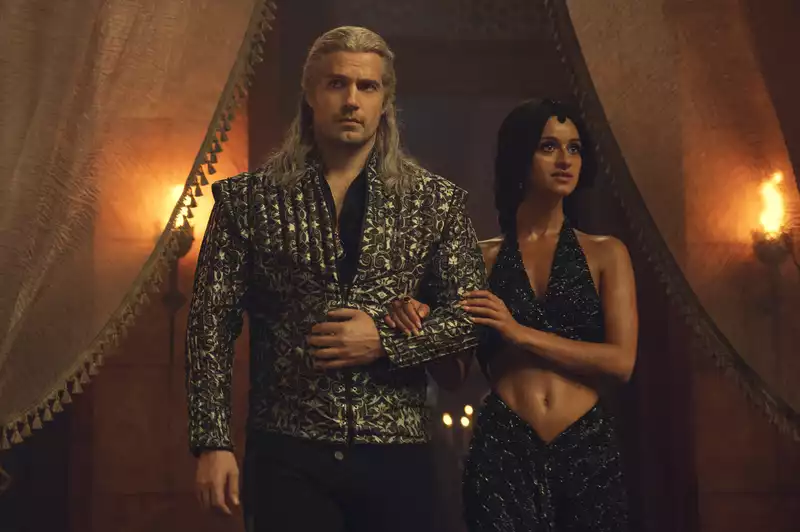The most common criticism of Netflix's The Witcher is that it strays too far from Anjay Sapkowski's novels. That may have been a source of tension behind the scenes as well: while previous series star Henry Cavill said he "pushed really, really hard" to stay true to the source material, he claimed that some of the show's writers "actively hated" the source material. There is no question that some aspects of the novel have been simplified for the TV show, but in an interview with Polish site Wyborcza (translated by Witcher fan site Redanian Intelligence), executive producer Tomek Baginski explained why such changes were made: "The higher the level of nuance and complexity, the narrower the breadth."
Sometimes changes are made out of economic necessity: for example, a production cannot be halted because an actor falls ill. But, according to Baginski, the needs of international audiences, especially Western audiences, and, more specifically, the needs of the lucrative American market, must also be kept in mind. A few years ago, while promoting an unfinished film project called "Hardkor 44," a science fiction retelling of the Warsaw Uprising, he encountered a "perception block" with American audiences.
"I tried to explain: there was an uprising against Germany, but the Russians were across the river, and on the German side there were soldiers from Hungary and Ukraine. It was totally incomprehensible and too complicated for the Americans: America is always good, and everything else is bad." America is always good, and everything else is evil.
The lesson, whether one agrees with it or not, seems to have taken hold. Baginski says, "When a series is made for a large audience from different parts of the world, with different experiences, and the majority of whom are Americans, such simplification not only makes sense, it's necessary." But the higher the level of nuance and complexity, the narrower the scope, the less it reaches people." Sometimes we may go too far, but we have to make these decisions and embrace them."
Blaming the U.S. has been a pan-European pastime of haughty creatives for decades. But even so, the specificity of Baginski's criticism of the Americans strikes me as a strange and unnecessary insult. History is indeed complex, and it is natural to contextualize it within the framework of one's own experience, but to cite complexity and an inability to grasp nuance as a specific national trait is a ridiculous generalization.
He is not done yet. Baginski has not only put the blame on all Americans, he has also gone further to defend the low literacy of Netflix's "The Witcher" In another interview with the YouTube channel Imponderabilia, he also, pointed the finger at children who have grown up with YouTube and TikTok, claiming that they have lost patience with the "long and complex chain of cause and effect."
(The interviewer, who at this point described himself as a member of that younger generation, had a very pointed response to Baginski's statement: "What you're saying is that you don't know how to make programming that kids want to watch." (Ouch.)
Tangles aside, I think Baginski's point has validity in a more general sense: if your show is not acceptable to a wide audience, it's not going to do very well on a major streaming service these days. Those execs are trigger happy. The Witcher books are complicated as hell, involving multiple layers of intrigue and power games between individuals and factions. You can't just shove it down people's throats (especially the majority of viewers who are not avid Witcher fans) and expect to keep their attention. For example, Redanian Intelligence has a good breakdown of how the show changed one of the main plots of the book, and it requires multiple paragraphs to explain; could Netflix have achieved such complexity in its adaptation of The Witcher? That is the question now, when entertainment media is either a quick hit or a complete failure.
The third season of The Witcher (Henry Cavill's Last Stand) is now available in full on Netflix. The first half of the season was quite enjoyable, but it is somewhat disappointing on review aggregator Rotten Tomatoes: 77% of critics rate it, but only 22% of audiences rate it.
.

Comments